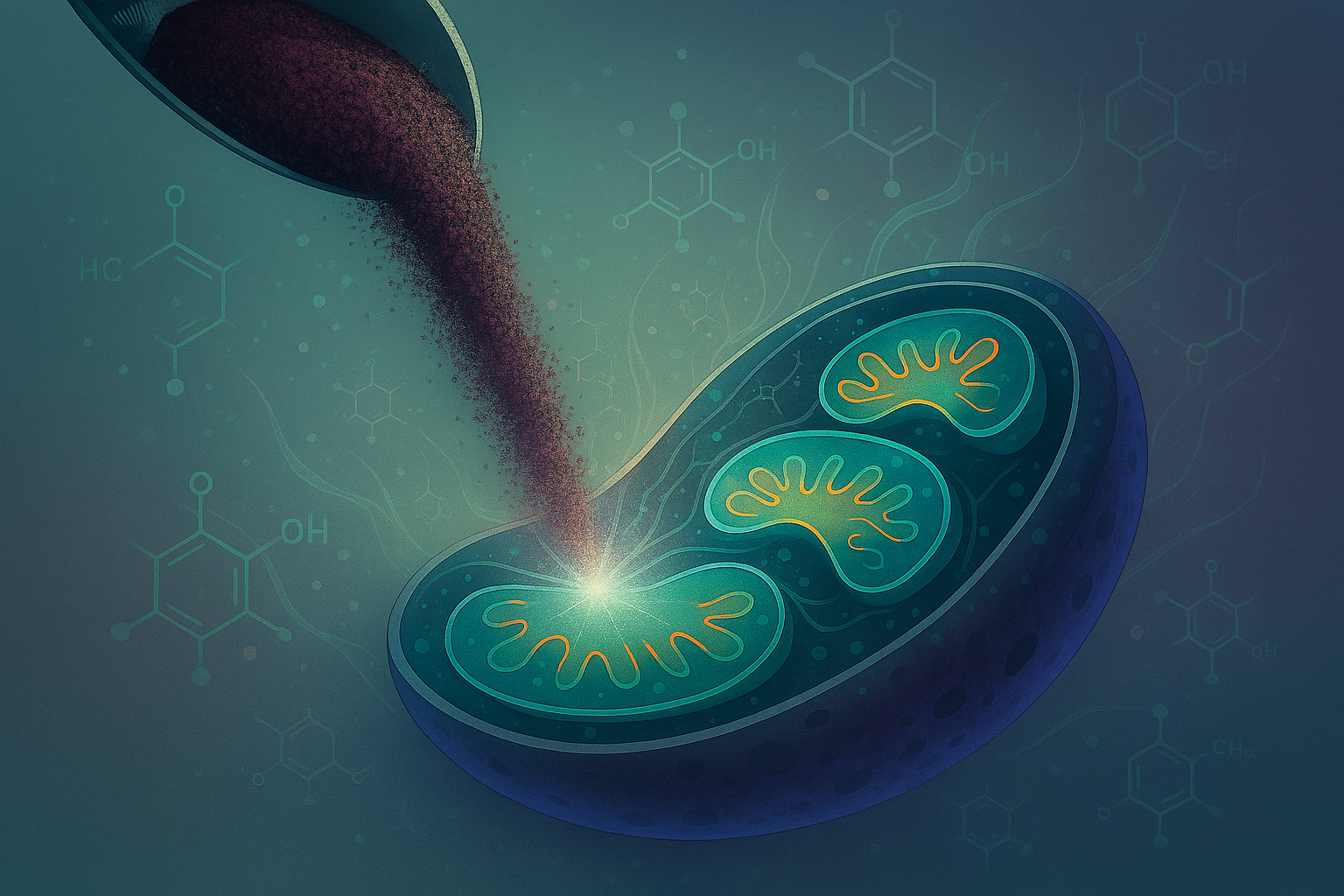Queen’s University and Peqish Launch First Healthy Aging Human Trial on Polyphenols and Mitochondrial Recovery
Vancouver, Canada
What if the solution to aging muscles and athletic recovery was found in a plant, rather than a pill? Queen’s University and Peqish have launched a groundbreaking clinical trial to investigate the effects of Phyto-P™—a proprietary, polyphenol-rich red lettuce extract known for its powerful antioxidant properties—on muscle recovery and markers of mitochondrial health in humans.
Phyto-P™ is a potent antioxidant powder containing up to nine times the polyphenol content of standard red lettuce, thanks to Peqish’s proprietary cultivation methods. This study has the potential to reshape nutritional science and advance tools for healthy aging. The 12-week trial begins in Q3 2025, aiming to bring lab-tested plant science closer to everyday recovery and aging strategies.
“This trial marks a pivotal moment in our journey to bring science-backed, ag-tech derived solutions to the forefront of healthy aging,” says Dr. Marotta. “By harnessing the power of plant polyphenols through Phyto-P™, we’re exploring a natural, accessible path to muscle recovery and cellular health—one that could redefine how we support aging populations and athletic performance alike.”
Led by two investigators working at the intersection of ag-tech and health, the study brings together Dr. Chris McGlory at Queen’s University who directs the Nutrition and Metabolism Research Group (NMRG), and Dr. Anthony Marotta who is the Chief Executive Officer and Chief Scientific Officer of Peqish.
Peqish is a science-driven ag-tech company committed to developing innovative, clinically validated products that promote human health. The project is supported by the Canadian Frailty Network (CFN), a national leader in improving care for older Canadian adults living with frailty. The collaboration highlights the project’s potential to advance healthy aging, with insights expected to inform future education, strategies, and treatments for aging populations.
“Understanding how plant-based compounds influence muscle recovery at the cellular level is a critical step forward in nutritional science,” says Dr. McGlory. “This study allows us to explore the potential of polyphenols to enhance mitochondrial function and promote muscle health in older adults.”
Dr. McGlory leads a world-leading lab capable of measuring how human muscles rebuild and recharge after exercise—essential for understanding how nutrition influences recovery at the cellular level. With more than 3,100 sq ft of research space, NMRG is a key player in discovering how plant compounds and exercise can have lasting effects on the health of muscle.
Dr. Marotta is a translational scientist and entrepreneur with a track record of transforming complex scientific research into practical, real-world innovations. He is the co-founder of Peqish, a pioneering company that integrates food science and agricultural technology to deliver health-promoting solutions. In this initiative, Dr. Marotta leverages his ability to lead multidisciplinary teams, mentor emerging talent, and drive strategic planning—ensuring that scientific insights translate into meaningful impact.
Why Polyphenols?
While medications are commonly used to reduce inflammation, they often fall short in targeting muscle recovery and may introduce unwanted side effects. This trial explores a more natural solution: Phyto-P, which leverages a proprietary blend of polyphenols found in Lactuca sativa, a type of lettuce rich in antioxidant compounds. These compounds are recognized for enhancing recovery from exercise-induced damage and aging.
Scientific research suggests these plant-based nutrients may help reduce muscle damage and improve energy production in our cells. However, there is still limited understanding of how these compounds work in humans. This trial will be the first of its kind to explore how polyphenol supplements affect muscle cell recovery after exercise training in healthy adults.
The trial is a 12-week blinded, placebo-controlled study where participants will be randomly assigned to take either Phyto-P™ or a placebo while participating in a weight and cycling training program. Researchers will collect biological samples to assess changes in markers of mitochondrial health and muscle recovery.
“Supporting research that promotes healthier aging is central to our mission at the Canadian Frailty Network,” states Dr. John Muscedere. “This collaboration exemplifies how innovative science and strategic partnerships can lead to breakthroughs that empower older adults to live stronger, more resilient lives.”
Muscle, Mitochondria, and Recovery
This research addresses a crucial gap in our understanding of how nutritional supplementation can improve muscle recovery and performance. By discovering how polyphenols work in the human body, the study could lay the groundwork for a new wave of science-backed nutritional supplements that support healthy aging and athletic performance—without the side effects of traditional medications.
Meet the Partners
Queen’s University is a global leader in health and exercise science, with a long history of producing groundbreaking research and innovation. The NMRG lab, headed by Dr. McGlory, is a leader in human muscle metabolism. The lab uses advanced tools to measure how muscle is built and broken down over time, how enzymes function, and how proteins are synthesized and modified—offering exciting insights into the body’s recovery and repair processes.
Peqish Group is a science-driven ag-tech company on a mission to turn revolutionary plant science into real-world health solutions. By combining advanced technology with deep clinical and scientific expertise, Peqish develops products that not only manage conditions but help prevent and resolve them. From research to launch, Peqish is committed to supporting a healthier, more sustainable future where people can reach optimal health naturally.
Canadian Frailty Network (CFN) is dedicated to improving care for older adults living with frailty and supporting their families and caregivers. Through research, education, and knowledge sharing, CFN promotes science-backed, person-forward care that empowers both patients and providers. By partnering with researchers, clinicians, and community organizations nationwide, CFN is shaping how health policies and practices enhance quality of life for aging populations.
Forward-Looking Statements
This news release includes forward-looking statements, which relate to future events, expectations, and potential outcomes of the company. This includes words like "anticipate", "believe", "plan", "estimate", "expect", and "intend", or phrases such as "may", "might", "could", "should", or "will" when referring to actions or events that haven’t happened yet. These statements are based on assumptions and expectations, and as with any future statement, there are risks and uncertainties involved. Actual results and outcomes may be different due to unpredictable factors like market changes, funding needs, competing priorities, and changes in share prices. We make these statements based on the information we have now, at the time of writing, and aren’t obligated to update them unless required by law. Investors should be cautious about placing undue certainty on forward-looking statements.

